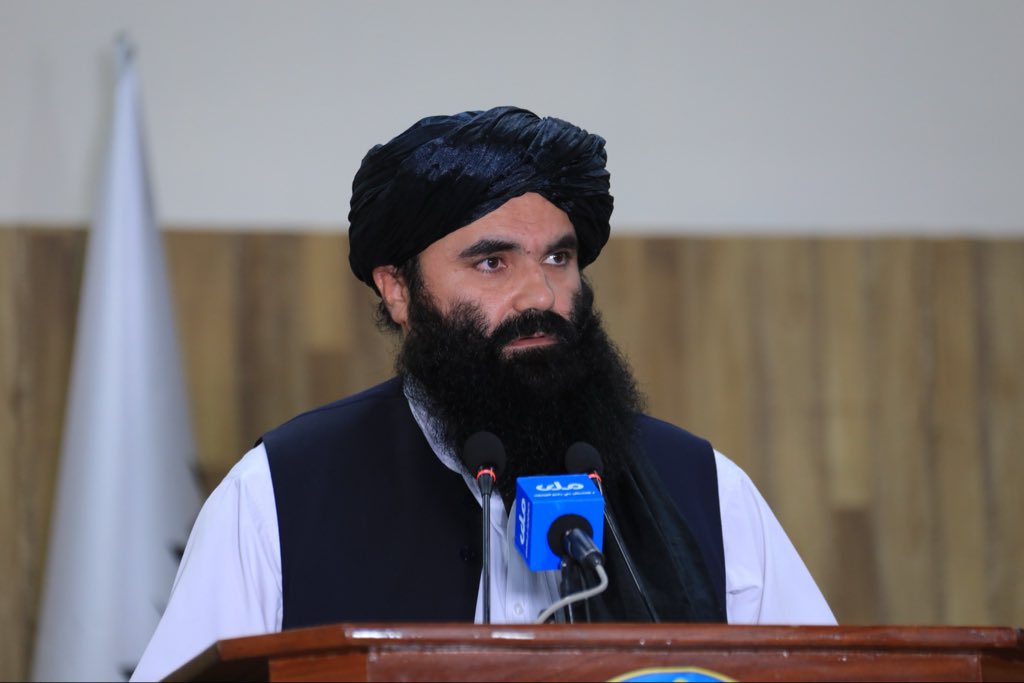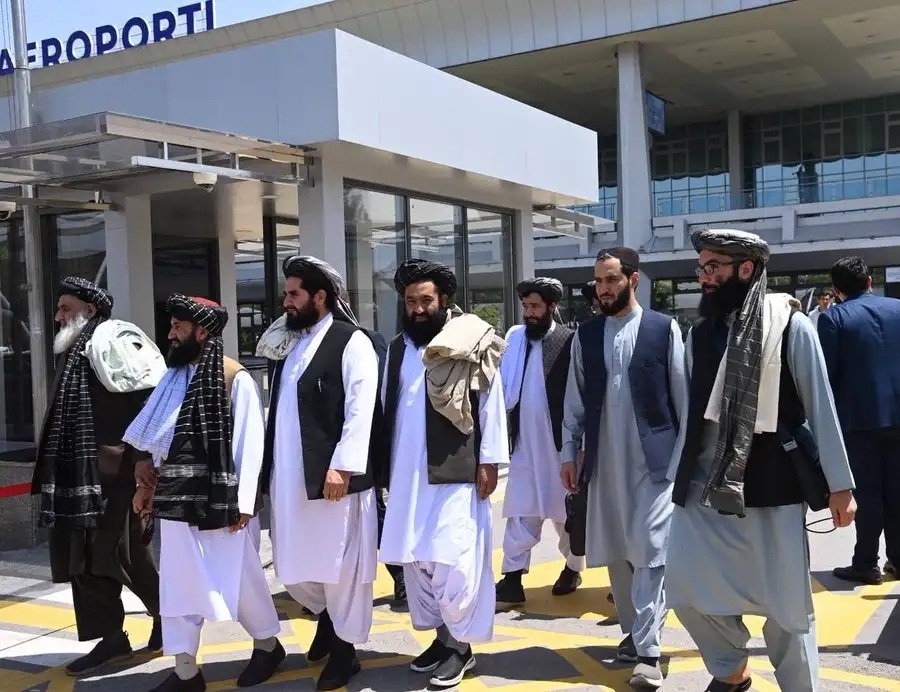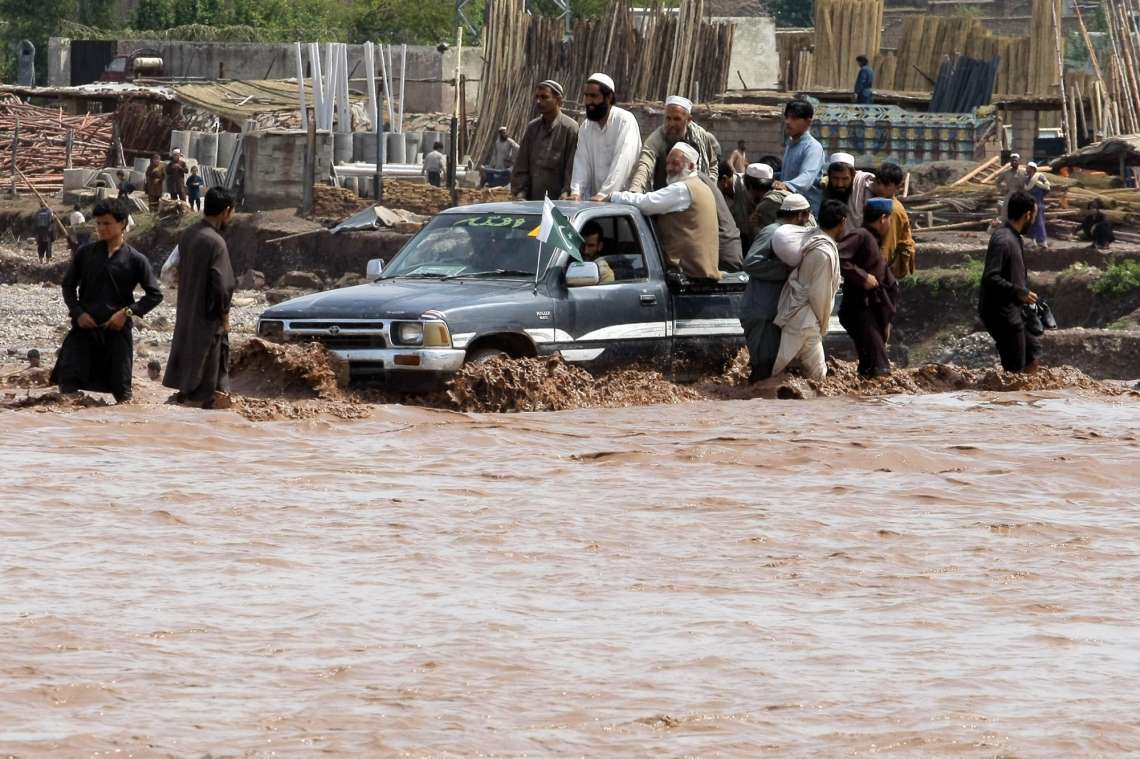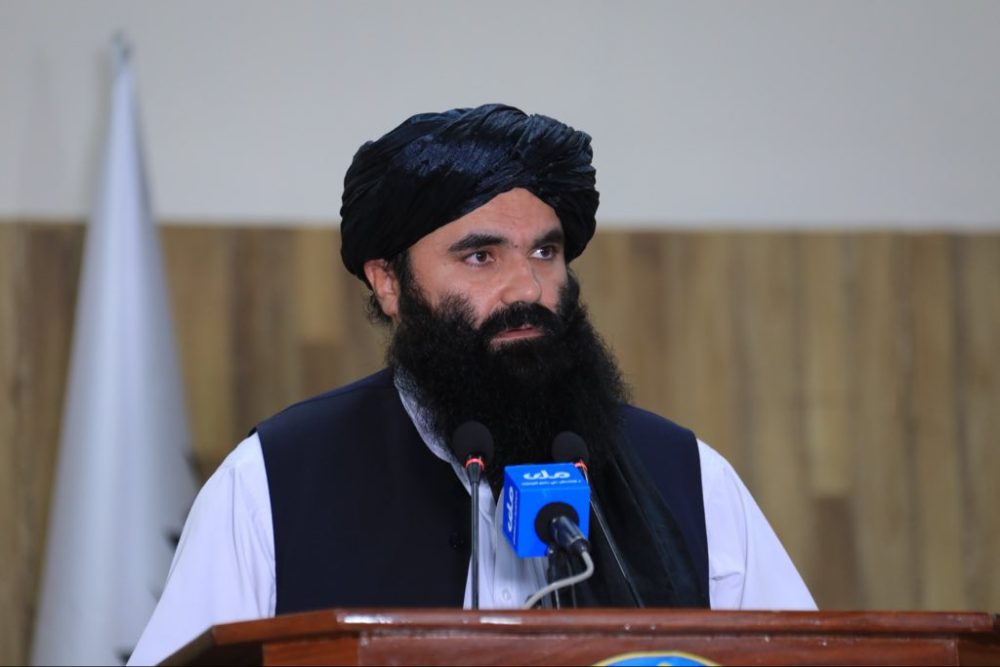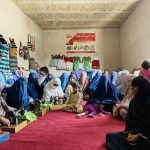The imposition of what it called a “gender apartheid system”, one million Afghan girls remain locked out of classrooms as Taliban restrictions crush hopes, deny futures, and silence young voices yearning for knowledge and freedom.
Afghanistan’s humanitarian crisis continues to deepen as girls remain barred from schools, children deported from neighbouring countries struggle in isolation, and international organisations warn of worsening displacement and poverty. The latest report by the Atlantic Council, cited by Tolo News, paints a grim picture of life under the Taliban’s restrictions, where education has become an “act of resistance.”
Since the Taliban’s return to power in 2021, more than one million Afghan girls have been denied the right to education, the council reported. The imposition of what it called a “gender apartheid system” has forced girls out of classrooms, leaving an entire generation on the margins of learning. “Across villages and cities, they continue to learn, build, and lead—often in silence, and often starting from next to nothing,” the report said.
Education as defiance
Women’s rights activists warn of long-term consequences if girls remain locked out of schools and universities. Tafsir Siyahposh, a prominent activist, urged the Taliban administration, referred to as the Islamic Emirate, to reopen schools. “We may not have doctors tomorrow, which is extremely important. We may not have teachers. In every field where women are needed today, we might have no one left to step in,” Siyahposh told Tolo News.
For many students, the demand is simple: access to education. Rabiya, a young Afghan, expressed how art gave her hope in a stifling environment. “When I work on a piece of art or paint a picture, I feel hopeful. I tell myself that even if I can’t go to school, at least I’ve managed to reach a certain point. Art is not less valuable than science, but worldly knowledge is necessary for us—we must learn it, because we are the ones who can build the future.”
Maryam, another student, added: “My only wish is that the doors of schools be reopened for us as soon as possible so that we can have a brighter future.”
Despite mounting international pressure, the Taliban government has largely dismissed criticism, calling female education a domestic issue and warning countries and organisations not to “interfere in internal affairs.”
UNICEF’s appeal to Taliban
Calling on Taliban to allow girls to pursue education at all levels, the United Nations International Children’s Emergency Fund (UNICEF) on Wednesday warned that the restrictions on girls’ education have confined them to their homes and they are increasingly facing mental health problems, child marriage and early pregnancies.
The agency urged Taliban to lift restrictions without delay and ensure that every girl gets access to education at all levels, from primary school to higher education, Afghanistan’s leading news agency Khaama Press reported. Notably, Taliban banned secondary education for girls in Afghanistan, shortly after they seized power in August 2021.
UNICEF Executive Director Catherine Russell voiced concerns over the deteriorating mental health challenges and increasing early marriages among Afghan girls banned from pursuing education for nearly four years.
In a statement on Wednesday, UNICEF stated millions of girls have been impacted by restrictions imposed by Taliban. It warned that over 2.2 million adolescent girls will be excluded from schooling by the end of 2025.
Russell stated that return of two million Afghan refugees from Pakistan and Iran in 2025 has further increased the number of girls not going to school. She warned that restrictions have not only led to girls missing academic lessons but are also getting deprived of social interaction, personal growth, and opportunities to shape their future.
She said that Afghan girls were being deprived of being their basic right of education. She stated, “While millions of children worldwide return to classrooms for the new academic year, Afghan girls are denied this basic right,” terming it defining injustices of our time.
The UNICEF also expressed concern over Taliban’s exclusion of women from workforce, saying that the restrictions threaten Afghanistan’s long-term stability and progress, as no nation can prosper when half its population is not allowed to contribute in national development and workforce. The agency emphasised that the recent earthquake in Afghanistan demonstrates the critical need for trained female health and social workers in a segregated society.
On September 8, UN Mission in Afghanistan (UNAMA) head Roza Utunbayeva marked the International Literacy Day by calling for access to education, especially for Afghan women and girls, Khaama Press reported. Speaking in Kabul on September 8, Utunbayeva said books are source of knowledge and a path to sustainable well-being, emphasising that equal access is important for Afghanistan’s future.
UNAMA warned that Taliban’s restrictions continue to bar girls for pursuing education in secondary schools and universities, a policy that now continues for fourth year. The UN officials warned that restrictions on Afghan girls education undermines both human rights and development, leaving Afghanistan further isolated and unprepared for modern day realities.



